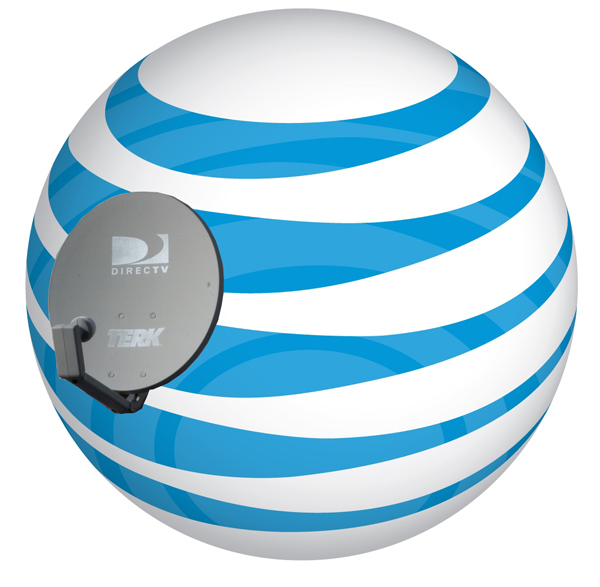AT&T Makes Deal To Acquire DirecTV, Bring Satellite Service To Death Star
And while the respective boards of AT&T and DirecTV might have given their approval to the deal, it still requires the blessing of both the FCC and the Justice Dept. before it can happen.
For DirecTV, the move is an effort to stay competitive in a pay-TV marketplace that is quickly shifting toward streaming video. Unlike terrestrial cable companies like Comcast and Time Warner Cable that can easily bundle in broadband with their TV offerings, satellite providers like DirecTV and Dish have not been able to convince their millions of users to switch to satellite broadband, and the DSL bundles they offer in partnership with local telephone providers are generally slower than cable broadband.
Meanwhile, AT&T gains monthly subscription revenue from around 20 million DirecTV subscriptions, which would provide the company a new source of cash to invest in expanding its comparatively slight U-Verse pay-TV and Internet service and its still-young gigabit Internet offering.
In its statement about the merger, AT&T claims it will “use the merger synergies to expand its plans to build and enhance high-speed broadband service to 15 million customer locations, mostly in rural areas where AT&T does not provide high-speed broadband service today.” The company says it will have this expansion finished within four years after the deal closes, and that it’s in addition to any expansion plans the company has already announced.
One final cherry being placed on top of the deal by AT&T is a promise to abide by net neutrality rules — not the ones currently being debated in Washington, but the 2010 version of net neutrality that was gutted by a federal appeals court earlier this year.
AT&T says it will commit to following those guidelines — which both ban the throttling of data and “fast lanes” that allow content companies to pay for improved access to end-users.
Of course, it’s impossible to look at this merger without considering that other pending pay-TV marriage between Comcast and Time Warner Cable.
Our colleagues at Consumers Union caution that approval of these deals could set off a trail of dominoes that leads to further consolidation in a marketplace that already has too few players.
“On the heels of Comcast’s bid for Time Warner Cable, AT&T is going to try to pull off a mega-merger of its own. These could be the start of a wave of mergers that should put federal regulators on high alert,” explains Delara Derakhshani, policy counsel for Consumers Union. “AT&T’s takeover of DirecTV is just the latest attempt at consolidation in a marketplace where consumers are already saddled with lousy service and price hikes. The rush is on for some of the biggest industry players to get even bigger, with consumers left on the losing end. You can’t justify AT&T buying DirecTV by pointing at Comcast’s grab for Time Warner, because neither one is a good deal for consumers.”
Want more consumer news? Visit our parent organization, Consumer Reports, for the latest on scams, recalls, and other consumer issues.


